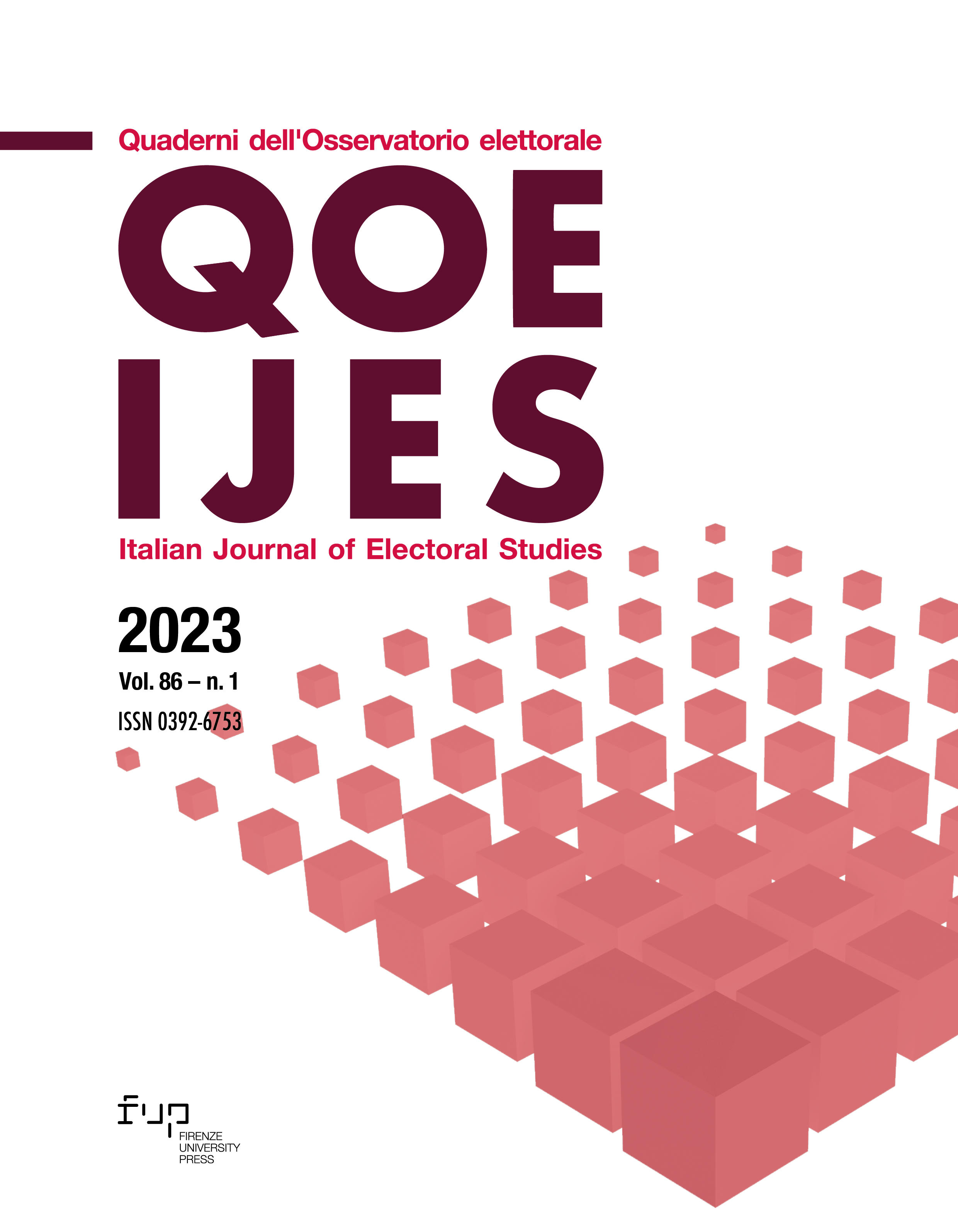Vol 86, No 1 (2023): The 2022 Italian general election
Issue Description
The 2022 Italian general election, a special issue with Arianna Giovannini, Marco Valbruzzi, and Davide Vampa as Guest editors, features a series of scientific contributions that investigate the different, relevant aspects of the latest legislative elections in Italy.
The introduction by the special issue Guest editors places the 2022 election within the recent electoral history of Italy and the broader European context, and it argues that the election did not represent a radical change from the past. Rather it marked a further step in the emergence of a ‘new political normal’ characterized by volatility, fragmentation, mainstreaming of populist ideas and actors, polarization, and the reframing of socio-economic and socio-cultural cleavages.
Bertero and Scaduto analyse the pre-electoral phase and observe the strategies of the different parties and coalitions during the 2022 electoral campaign, highlighting a complex interplay between newer and older logics shaping the current hybrid media system.
Marini and Piccolino look at the electoral results, interpreted not only from a diachronic national standpoint but also from a synchronic comparative perspective on a European scale. In that perspective, 2022 Italy fits within a European electoral context of significant growth of far-right parties. Considering the historical framework, the outcome of the Italian elections can be assessed as anything but an outlier.
Boldrini and Grimaldi focus on the representatives elected to the Italian Parliament, whose number was significantly reduced by a constitutional reform in 2020. They point out how the winner of the 2022 general election, Meloni's Fratelli d'Italia (FdI), did not trigger a process of political renewal as dramatic as that produced by the Five Stars Movement (M5S) in 2013 and 2018 or by Forza Italia (and its allies) in 1994. More in general, the 2022 election does not seem to have marked a new critical juncture in recent Italian history nor a widening of the gap between continuously changing parliamentary equilibria in Italy and more stable political elites in the rest of Europe.
Finally, Griffini investigates the aftermath of the election: the short post-electoral negotiations to form the new cabinet, and its first 100 days in office. In a nutshell, she finds that, in line with trends in both Italy and other European countries where populist radical right parties are in office, moderation has been a hallmark of Meloni’s government in the initial period, although some radical positions have emerged (especially in the domestic sphere and on symbolic measures).
Enjoy your reading!

